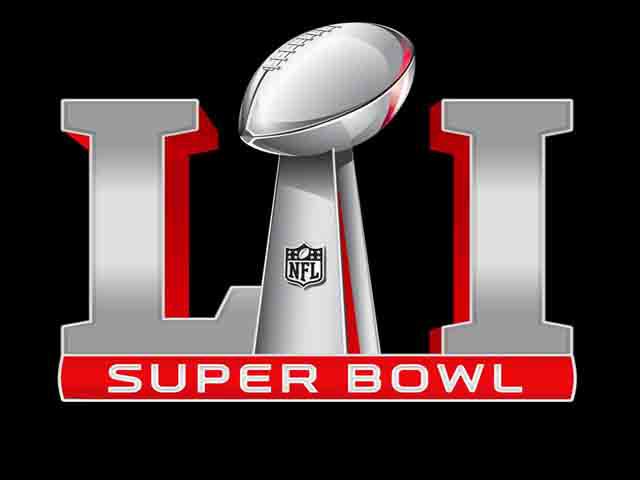Super Bowl LI
Number Fifty-one: Super Bowl LI. Which took place in Houston, Texas, and pitted the New England Patriots against the Atlanta Falcons. This was a chance for Tom Brady to earn his fifth Super Bowl ring and cement his legacy as perhaps the greatest quarterback of all time. For Matt Ryan, this was an opportunity to begin his, and create a name of his own. But in one of the most historic, record setting games in Super Bowl history, the New England Patriots came back from a twenty-five point deficit to drag the game into overtime and win the Lombardi trophy, proving victorious in Super Bowl LI, with a final score of 34-28.
After a classic performance of the National Anthem by Luke Bryan, Super Bowl LI began with former president George H. W. Bush tossing the coin in favor of Atlanta. The game began slowly, with the Patriots’ offense not being able to make any plays, partially because of them starting slow (as they usually do in Super Bowls; all seven Super Bowls for the Patriots have had them scoring zero points in the first quarter) and partially because of Atlanta’s defense, often putting pressure on Brady. The same can be said for the Falcons; they started rough, with New England’s defense preventing plays on many occasions. Quarter one ended with both teams scoring no points.
Quarter two took a dramatic turn, with the Falcons taking advantage of a couple of the Patriots’ mistakes. The first of these was LeGarrette Blount’s fumble, which eventually led to a Falcons touchdown. The second was a pick-six by Robert Alford. These two touchdowns (paired with an offensive drive by Atlanta that also led to a touchdown in the same quarter) put the Falcons ahead by an enormous 21-0. At this point, it seemed the Falcons were on their way to their first ever Super Bowl win in franchise history. The first half ended with a score of 21-3, after a field goal by Stephen Gostkowski.
After Lady Gaga’s thrillimg half-time performance, it seemed as if both teams continued to carry the same momentum as in the first half. Although the Falcons were forced into a three and out during their opening drive, they quickly recovered and scored another touchdown on their next possession. At this point it was 28-3, and, again, it seemed a lost cause for the Patriots, one in which they faced a twenty-five point deficit. No team had ever recovered from such a deficit in the Super Bowl, the record set at ten. Nevertheless, on the possession after, the Patriots’ offense scored a touchdown, ending quarter three with a score of 28-9, after Gostkowski missed the extra point attempt. And then, the historic fourth quarter began.
For New England, they’d need to drive into Atlanta territory at least three times and score. And of those three times, they’d need to score a touchdown on at least two of those drives, with an addition of two two-point conversions for those two touchdowns. And they’d need to do it within one quarter time, all whilst preventing Atlanta, the number one scoring offense, from gaining any points. Ironically and unbelievably, exactly that happened.
Tom Brady led the team into Atlanta territory, permitting an eventual successful field goal attempt, narrowing the game 28-12. The Pats’ defense then took the field and forced a turnover, featuring Dont’a Hightower strip-sacking Matt Ryan. This gave the Patriots’ offense a great field position, and allowed them to score, now bringing the game to 28-20. When the Falcons took the field, they were once again taken care of, and the Patriots’ defense forced them to punt. Then Tom Brady took the field again, leading his Patriots offense in an impressive 91 yard drive that featured an incredible catch by Julian Edelman. This tied the scores, and eventually brought the game into overtime, the first ever in Super Bowl history.
New England won the coin toss for overtime, and took advantage. After a nerve-wracking drive that featured Brady making completions to a number of his receivers, they drove straight to the end-zone, ending with James White scoring the touchdown and ending the game, and a final score of 34-28.
Tom Brady finished with a 69.4 completion percentage which included a record: setting 43 completions for 62 attempts. He amassed 466 passing yards, also a record in the Super Bowl, with two touchdowns and one interception. He now has five Super Bowl rings, more than any other quarterback to ever play. Head Coach Bill Belichick now also has five Super Bowl rings- only four other head coaches in NFL history have four or more Super Bowl victories. And the New England Patriots have now been seen in the Super Bowl nine times, a franchise record, with seven of those appearances by this new Patriots dynasty that began a decade ago. And perhaps, to the terror and dismay of many, this Patriots dynasty still seems to have a lot left in the tank.


